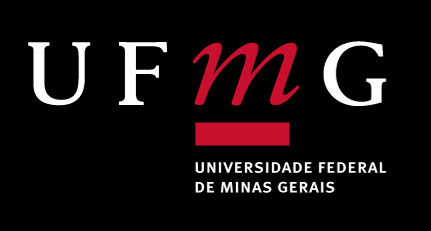Explicando (com) o neoliberalismo
DOI:
https://doi.org/10.35699/2237-549X.2024.56050Palavras-chave:
neoliberalismo, economia política, pós-estruturalismo, etnografiaResumo
O artigo assume a forma de uma reflexão sobre o status explanatório do neoliberalismo, antes e depois da crise global de 2008. É importante ressaltar que, antes da crise, as concepções político-econômicas do neoliberalismo como modelo hegemônico e como um regime relativamente robusto de regulação do mercado facilitado pelo Estado eram recebidas com crescente ceticismo por alguns críticos pós-estruturalistas, enquanto alguns etnógrafos consideravam as ferramentas conceituais que as acompanhavam muito brandas para seus objetivos metodológicos. No entanto, se a crise global - longe de demarcar um desfecho infeliz para o regime de regras de mercado - parece ter provocado uma espécie de reforço de sua intensidade e alcance, isso levou a uma reconsideração, em alguns setores, do status explanatório e político do neoliberalismo. Por sua vez, esse processo abriu novos caminhos de diálogo entre os tratamentos estruturais e pós-estruturais do neoliberalismo e entre as abordagens etnográficas e político-econômicas, ao mesmo tempo em que evidenciou uma série de tensões contínuas, tanto epistemológicas quanto ontológicas. O artigo apresenta um pensamento crítico sobre esse tópico emergente.
Referências
ALBO G. (2007) Neoliberalism and the discontented, in PANITCH L. and LEYS C. (Eds) Global Flashpoints, pp. 354–362. Merlin Press, London.
BLYTH M. (2013) Austerity: The History of a Dangerous Idea. Oxford University Press, New York.
BOND P. (2009) Realistic postneoliberalism—a view from South Africa, Development Dialogue 51 (1), 193–211.
BOURDIEU P. (1998) Acts of Resistance. Polity, Cambridge.
BRENNER N. and THEODORE N. (2002) Cities and the geographies of “actually existing neoliberalism”, in BRENNER N. and THEODORE N. (Eds) Spaces of Neoliberalism: Urban Restructuring in North America and Western Europe, pp. 2–32. Blackwell, Oxford.
BRENNER N., PECK J. and THEODORE N. (2010) Variegated neoliberalization: geographies, modalities, pathways, Global Networks 10(2), 1–41.
BURAWOY M. (2003) For a sociological Marxism: the complementary convergence of Antonio Gramsci and Karl Polanyi, Politics and Society 31(2), 193–261.
BURAWOY M. (2011) The Extended Case Method: Four Countries, Four Decades, Four Great Trans formations, and One Theoretical Tradition. University of California Press, Berkeley.
CAHILL D. (2012) The embedded neoliberal economy, in CAHILL D., EDWARDS L. and STILWELL F. (Eds) Neoliberalism: Beyond the Free Market, pp. 110–127. Edward Elgar, Cheltenham.
CENTENO M. A. and COHEN J. N. (2012) The arc of neoliberalism, Annual Review of Sociology 38 (1), 317–340.
CHU Y. and SO A. Y. (2010) State neoliberalism: the Chinese road to capitalism, in CHU Y. (Ed.) Chinese Capitalisms: Historical Emergence and Political Implications, pp. 73–99. Palgrave Macmi lan, Basingstoke.
CLARKE J. (2008) Living with/in and without neo-liberalism, Focaal 51(1), 135–147.
COLLIER S. J. (2011) Post-Soviet Social: Neoliberalism, Social Modernity, Biopolitics. Princeton University Press, Princeton.
COLLIER S. J. (2012) Neoliberalism as big Leviathan, or …? A response to Wacquant and Hilgers, Social Anthropology/Anthropologie Sociale 20(2), 186–195.
CROUCH C. (2011) The Strange Non-death of Neoliberalism. Polity, Cambridge.
DAVIS M. (2011) Spring confronts winter, New Left Review 72, 5–15.
DEAN M. (2012) Free economy, strong state, in CAHILL D., EDWARDS L. and STILWELL F. (Eds) Neoliberalism: Beyond the Free Market, pp. 69–89. Edward Elgar, Cheltenham.
ELLIOT L. (2011) Three years on, it’s as if the crisis never happened, The Guardian, 30 May, 22.
FAIRBANKS R. P. (2012) On theory and method: critical ethnographic approaches to urban regu latory restructuring, Urban Geography 33(4), 545–565.
FERGUSON J. (2010) The uses of neoliberalism, Antipode 41(1), 166–184.
FOUCAULT M. (2008) The Birth of Biopolitics. Palgrave, Basingstoke.
GAMBLE A. (1988) The Free Economy and the Strong State: The Politics of Thatcherism. Macmillan, London.
GIBSON-GRAHAM J.-K. (2008) Diverse economies: performative practices for “other worlds”, Progress in Human Geography 32(5), 613–632.
GLEDHILL J. (2004) Neoliberalism, in NUGENT D. and VINCENT J. (Eds) A Companion to the Anthropology of Politics, pp. 332–348. Blackwell, Oxford.
GOLDSTEIN D. M. (2012) Decolonialising “actually existing neoliberalism”, Social Anthropology/ Anthropologie Sociale 20(3), 304–309.
HALL S. (1988) The toad in the garden: Thatcherism among the theorists, in NELSON C. and GROSSBERG L. (Eds) Marxism and the Interpretation of Culture, pp. 35–57. University of Illinois Press, Urbana, IL.
HALL S. (2003) New Labour’s double shuffle, Soundings 24, 10–24.
HALL S. (2011) The neo-liberal revolution, Cultural Studies 25(6), 705–728.
HALL S. and JACQUES M. (Eds) (1989) New Times. Lawrence & Wishart, London.
HARRIS J. (2011) The world needs a new Marx, but it keeps creating Malcolm Gladwells, The Guardian, 8 June, 29.
HARVEY D. (2005) A Brief History of Neoliberalism. Oxford University Press, Oxford.
HARVEY D. (2012) Rebel Cities. Verso, London.
HILGERS M. (2011) The three anthropological approaches to neoliberalism, International Social Science Journal 61(202), 351–364.
HILGERS M. (2012) The historicity of the neoliberal state, Social Anthropology/Anthropologie Sociale 20(1), 80–94.
IEO-IMF [INDEPENDENT EVALUATION OFFICE OF THE INTERNATIONAL MONETARY FUND] (2011) IMF Performance in the Run-Up to the Financial and Economic Crisis. IEO-IMF, Washington, DC. JESSOP B. (2000) The crisis of the national spatio-temporal fix and the tendential ecological dom inance of globalizing capitalism, International Journal of Urban and Regional Research 24(2), 323–360.
JESSOP B. (2004) New Labour’s doppelte Kehrtwende: Anmerkungen zu Stuart Hall und eine alternative Perspektiv zu New Labour, Das Argument 256, 494–504.
JESSOP B., BONNETT K., BROMLEY S. and LING T. (1988) Thatcherism. Polity, Cambridge.
JONES D. S. (2012) Masters of the Universe: Hayek, Friedman, and the Birth of Neoliberal Politics. Princeton University Press, Princeton.
KALB D. (2012) Thinking about neoliberalism as if the crisis was happening, Social Anthropology/Anthropologie Sociale 20(3), 318–330.
KINGFISHER K. and MASKOVSKY J. (2008a) Introduction: the limits of neoliberalism, Critique of Anthropology 28(2), 115–126.
KINGFISHER K. and MASKOVSKY J. (Eds) (2008b) The limits of neoliberalism, Critique of Anthropology 28(2), 115–255.
LARNER W. (2003) Neoliberalism?, Environment and Planning D: Society and Space 21(5), 509–512.
LATOUR B. (2007) Reassembling the Social. Oxford University Press, New York.
LEITNER H., SHEPPARD E. S., SZIARTO K. and MARINGANTI A. (2007a) Contesting urban futures: decentering neoliberalism, in LEITNER H., PECK J. and SHEPPARD E. S. (Eds) Contesting Neoliberalism: Urban Frontiers, pp. 1–25. Guilford, New York.
LEITNER H., PECK J. and SHEPPARD E. S. (2007b) Squaring up to neoliberalism, in LEITNER H., PECK J. and SHEPPARD E. S. (Eds) Contesting Neoliberalism: Urban Frontiers, pp. 311–327. Guil ford, New York.
MANN M. (1984) The autonomous power of the state: its origins, mechanisms and results, Archives Européennes de Sociologie 25(2), 185–213.
MIROWSKI P. and PLEHWE D. (Eds) (2009) The Road from Mont Pèlerin. Harvard University Press, Cambridge, MA.
NONONI D. M. (2008) Is China becoming neoliberal? Critique of Anthropology 28(2), 145–176.
ONG A. (2006) Neoliberalism as Exception: Mutations of Citizenship and Sovereignty. Duke University Press, Durham, NC.
ONG A. (2007) Neoliberalism as a mobile technology, Transactions of the Institute of British Geogra phers 32(1), 3–8.
PECK J. (2004) Geography and public policy: constructions of neoliberalism, Progress in Human Geography 28(3), 392–405.
PECK J. (2009) Zombie-Neoliberalismus und der beidhändige Staat, Das Argument 282, 644–650.
PECK J. (2010) Constructions of Neoliberal Reason. Oxford University Press, Oxford.
PECK J. (2012) Austerity urbanism: American cities under extreme economy, City 16(6), 626–655.
PECK J. (Forthcoming) For Polanyian economic geographies, Environment and Planning A. PECK J. and THEODORE N. (2012a) Follow the policy: a distended case approach, Environment and Planning A 44(1), 21–30.
PECK J. and THEODORE N. (2012b) Reanimating neoliberalism: process geographies of neoliberalization, Social Anthropology/Anthropologie Sociale 20(2), 177–185.
PECK J. and TICKELL A. (1994) Searching for a new institutional fix: the after-Fordist crisis and global-local disorder, in AMIN A. (Ed.) Post-Fordism: A Reader, pp. 280–316. Blackwell, Oxford.
PECK J. and TICKELL A. (2012) Apparitions of neoliberalism: revisiting “Jungle law breaks out”, Area 44(2), 245–249.
PECK J. and ZHANG J. (Forthcoming) A variety of capitalism … with Chinese characteristics? Journal of Economic Geography, DOI: 10.1093/jeg/lbs058.
PECK J., THEODORE N. and BRENNER N. (2010) Postneoliberalism and its malcontents, Antipode 41(1), 94–116.
PECK J., THEODORE N. and BRENNER N. (Forthcoming) Neoliberal urbanism redux? International Journal of Urban and Regional Research.
PIVEN F. F. (1995) Is it global economics or neo-laissez-faire? New Left Review 213, 107–115.
POLANYI K. (1944) The Great Transformation. Beacon Press, Boston, MA.
SAAD-FILHO A. and JOHNSTON D. (Eds) (2005) Neoliberalism: A Critical Reader. Pluto Press, London.
SADER E. (2011) The New Mole: Paths of the Latin American Left. Verso, London.
SIMMONS B. A., DOBBIN F. and GARRETT G. (2008) Introduction: the diffusion of liberalization, in SIMMONS B. A., DOBBIN F. and GARRETT G. (Eds) The Global Diffusion of Markets and Democracy, pp. 1–63. Cambridge University Press, New York.
SKIDELSKY R. (Ed.) (1989) Thatcherism. Blackwell, Oxford.
TICKELL A. and PECK J. (2003) Making global rules: globalization or neoliberalization? in PECK J. and YEUNG H. W-C. (Eds) Remaking the Global Economy: Economic-Geographical Perspectives, pp. 163–181. Sage, London.
TRETJAK K. and ABRELL E. (2011) Fracturing neoliberalism: ethnographic interventions, New Proposals 4(2), 29–32.
WACQUANT L. (2012) Three steps to a historical anthropology of existing neoliberalism, Social Anthropology/Anthropologie Sociale 20(1), 66–79.
WAINWRIGHT H. (2003) Reclaim the State: Experiments in Popular Democracy. Verso, London.
WEBBER J. R. (2011) From Rebellion to Reform in Bolivia. Haymarket Books, Chicago, IL.
Downloads
Publicado
Edição
Seção
Licença
Copyright (c) 2024 Jamie Peck

Este trabalho está licenciado sob uma licença Creative Commons Attribution 4.0 International License.
Os artigos desta revista obedecem a licença Creative Commons — Attribution 4.0 International — CC BY 4.0









